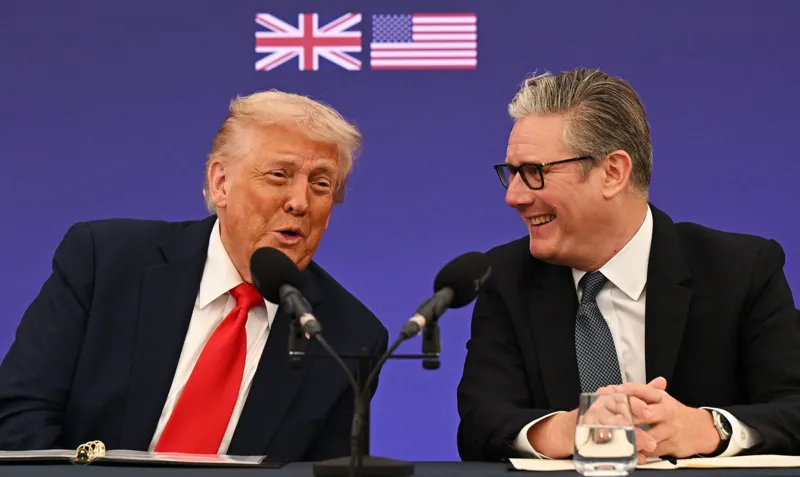A senior UK minister has dismissed suggestions by US President Donald Trump that the British military should be used to stop migrants from crossing the English Channel. Trade Secretary Peter Kyle said the military’s primary role is defending the nation, not tackling asylum seekers, and stressed that the UK Border Force is responsible for border security.
President Trump, speaking during a press conference with Prime Minister Sir Keir Starmer at Chequers, argued that strong military action is the best way to deter illegal migration. He warned that uncontrolled migration could “destroy countries from within” and said the UK should not hesitate to use military force to block small boat crossings. “It doesn’t matter what means you use,” Trump insisted.
Kyle rejected that call during an interview with BBC Breakfast. He explained that the UK Border Force has been strengthened with new powers under the Labour government and works closely with the Royal Navy when necessary. “The navy can be called upon if needed,” he said, “but what we really need at the moment is our military focused on global defence challenges that are critical to our national security.”
The issue came as hundreds of migrants attempted Channel crossings earlier in the day, and the government carried out the second deportation under its “one in one out” deal with France. The new arrangement allows the UK to return migrants to France while accepting others with stronger asylum claims in exchange. Around 100 men are currently being held at removal centres near Heathrow and may soon be flown back under the scheme.
Military figures have also raised doubts about Trump’s suggestion. General Sir Richard Barrons, former commander of UK Joint Forces Command, said geography makes military intervention impractical. Speaking on BBC Radio 4, he explained that France would not accept British troops on its beaches and that drones and commercial technology are already being used to track small boats. “The military would add manpower,” he said, “but it wouldn’t make the problem any different.”
The Ministry of Defence has also made clear that military assets are designed for defence purposes and are “not optimised” for tackling illegal migration. Instead, the Home Office is pushing ahead with its legal and diplomatic approach. New Home Secretary Shabana Mahmood has pledged to fight “vexatious, last-minute claims” in court and to expand the pilot returns scheme as quickly as possible.
The Labour government hopes that swift removals will deter future crossings. Kyle said: “Our target is to make sure that everybody who comes to our shore and doesn’t have the right to stay is removed. We want to show a functioning system that works so effectively that people don’t attempt the journey in the first place.”
Despite the efforts, the scale of crossings remains high. More than 5,500 migrants have reached the UK since the start of August, when the France deal began. While ministers admit the policy alone will not end the crossings, they argue that visible enforcement and international cooperation are essential steps toward reducing dangerous small boat journeys

